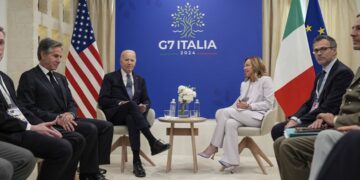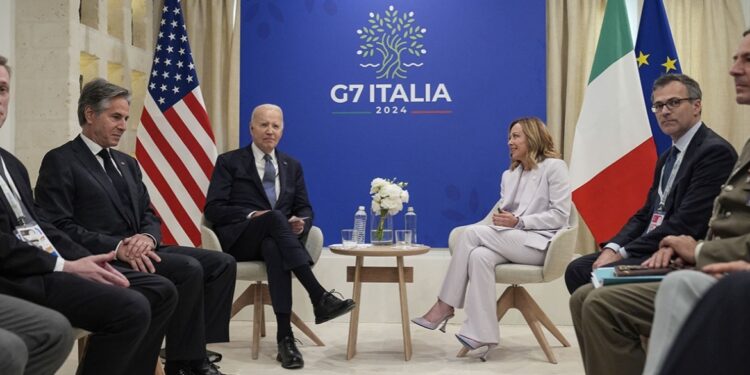By John Ikani
The Group of Seven (G7) leading industrialized nations shifted their focus on day two of their summit to addressing African migration. Italy, a key entry point into the European Union for people fleeing hardship in Africa, the Middle East, and Asia, prioritized the issue during its G7 presidency.
Italian Prime Minister Giorgia Meloni, known for her right-wing views, has actively sought solutions to curb African migration to Europe. “We wanted to dedicate significant time to Africa,” Meloni stated, “a continent critical to our shared future, with its challenges and opportunities.”
A controversial agreement exists between Italy and neighbouring Albania. The deal allows Albania to temporarily house thousands of asylum seekers while Italy processes their claims.
According to the UNHCR, over 22,000 people have arrived in Italy by sea so far in 2024. This number surpasses the 157,000 arrivals recorded in 2023, with nearly 2,000 tragically losing their lives or disappearing during the perilous Mediterranean crossing.
These migration discussions came after the G7 gathered at a luxurious resort in Italy’s Puglia region, pledged increased financial support for Ukraine’s fight against the Russian invasion.
On Thursday, the G7 agreed to utilize frozen Russian assets as collateral to raise $50 billion (roughly £39 billion) for Ukrainian aid. U.S. President Joe Biden hailed the move as proof that Western allies “were not backing down” over Ukraine.
Russia, in response, threatened harsh retaliatory measures. European Central Bank President Christine Lagarde previously cautioned that such a move risked “breaking the international order you would want Russia to respect.”
The summit is also expected to raise tensions with China, with discussions of potential sanctions targeting China’s industrial policies.




































